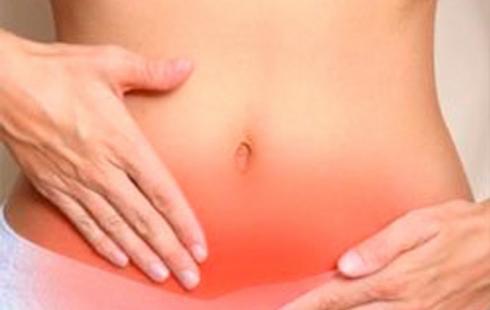
Gynecological diseases in general can be divided into three large groups:
- inflammatory nature, incl. viral and venereal,
- Caused by hormonal imbalanceinfertility, menopause, menstrual disorders, dysfunctional uterine bleeding, ovarian dysfunction, ovulation, pathology of puberty, etc.),
- changes in the tissues of the dystrophic and hyperplastic type, including neoplasms (ovarian cyst, uterine fibroids, cervical erosion, endometrial hyperplasia, malignant neoplasms).
Despite all the variety of women's diseases, almost all of them are based on chronic stress, and as a predisposition to an excessive response to stress, specific personal qualities. The main position among them is occupied by the components of anxiety, hypothymia (a persistent decrease in mood - the first signs of depression), passivity and self-doubt, low self-esteem, dependence on a husband or parents, suppression of emotions and their poor awareness.
Studies show that more than 90% of patients with chronic gynecological diseases complain of marital, parental and other interpersonal problems, in particular loneliness. About half of the patients suffer from mental disorders, have lower quality of life indicators, mainly in the field of social functioning.
Against this background, powerful psycho-traumatic situations that occur in later life act as factors provoking the disease. They, as a rule, are associated with experiences of loss (of a loved one, relationship, status, financial condition, etc.). It can also be long-term unresolved inter- and intrapersonal conflicts due to the inability to satisfy the needs that are important for a woman, which manifest themselves in “stagnant”, suppressed or repressed negative emotions - anger, fear, guilt, resentment, dissatisfaction with life.
In both cases, chronic psychophysiological stress gradually develops, weakening the protective reserves of the body, metabolic syndrome is formed, immunity is suppressed and the body's sensitivity to damaging agents of the external environment (including bacteria, viruses and carcinogens) increases. It has been established, for example, that women with high levels of everyday stress have a reduced immune response to the HPV16 papilloma virus, which makes them more vulnerable to developing cervical cancer.
If it is not possible to resolve conflicts, heal psychotrauma(s) and/or satisfy significant needs for a long time, a woman begins to develop a state of helplessness and hopelessness, leading to depression - mostly unconscious, sometimes clinical. This, in turn, contributes to various pathological bodily conditions, especially in the reproductive system, which can therefore rightfully be classified as psychosomatic.
Today, a number of scientists consider the complexity and significance of psychosomatic relationships in medicine, and, accordingly, all psychosomatic complaints (or at least most of them) as a manifestation of latent depression. The famous Spanish psychiatrist López Ybor Sr. was firmly convinced that psychosomatic disorders in many cases are depressive equivalents. According to V. Reef, depression, anxiety and somatic disorders are so related to each other that they can be attributed to a single disorder.
In particular, an unconscious depressive state often underlies the syndrome of premenstrual tension (premenstrual syndrome, PMS). Also, medical research has shown that more severe PMS often occurs in neurotic women, especially those involved in the struggle for existence and desperate attempts to "stay afloat." Latent depression also plays a significant role in the origin chronic pelvic pain.
That is why, with gynecological diseases, it is necessary to undergo a psychological examination and with the help of psychotherapy to eliminate those sources of stress (psycho -trauma and conflicts) that adversely affect the reproductive system.
A good complementary non-drug treatment is transcranial electrical brain stimulation (TES). It is widely used for the treatment of diseases of various origins due to its analgesic effect, it has a positive effect on the processes of reparation and an increase in the psychophysiological status of a person, reduces anxiety and depression.
A promising method for the rapid treatment of psycho-emotional imbalance caused by chronic stress is infusion treatment with ketamine.
Guided by the principles of integrative, holistic medicine, combining psychotherapy with ketamine infusions, transcranial electrical stimulation, rehabilitation of the brain "Neurohelp", body-oriented therapy and art therapy, a significant improvement in the health of patients can be achieved.
